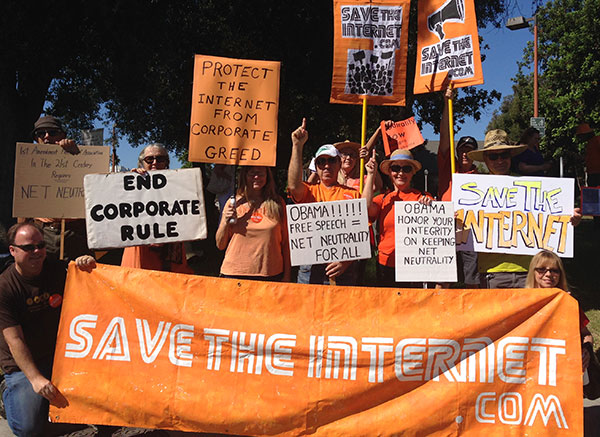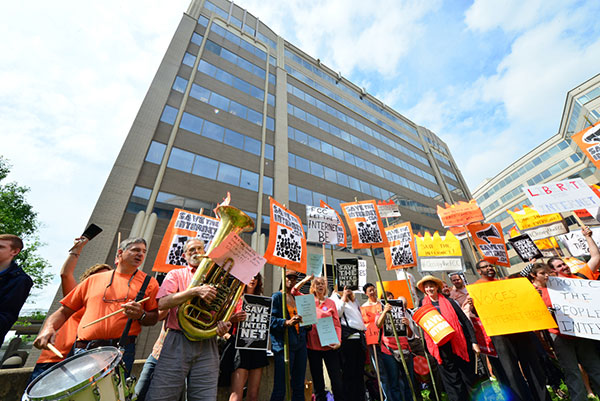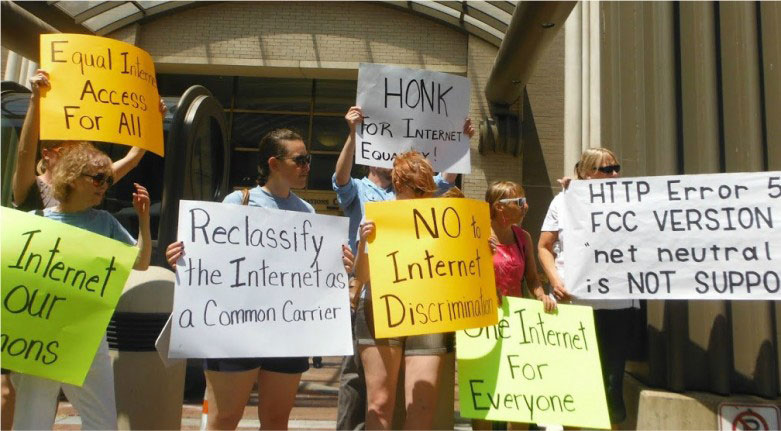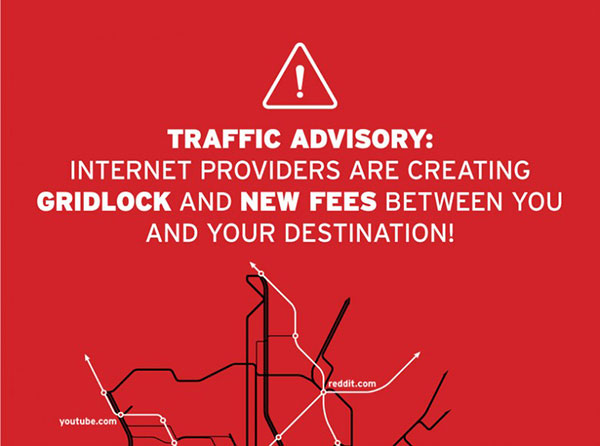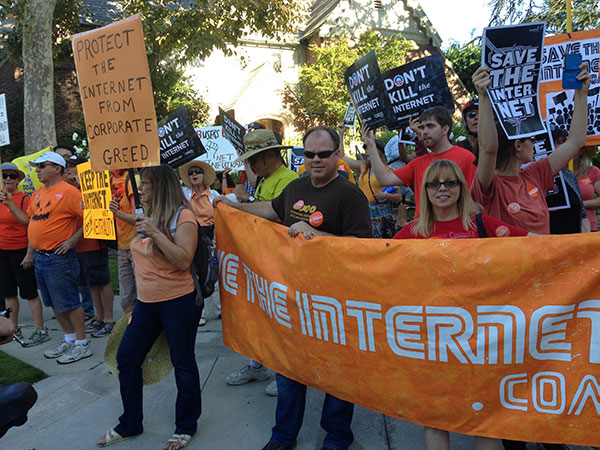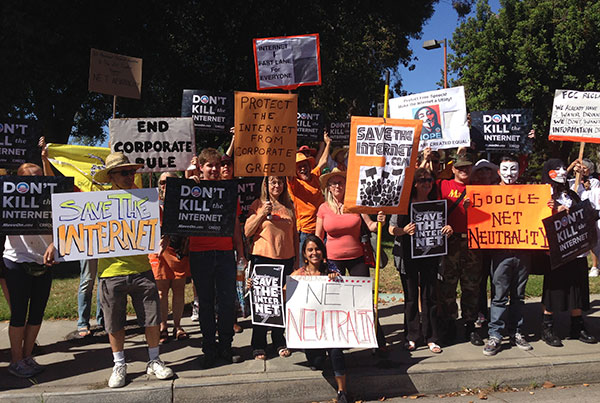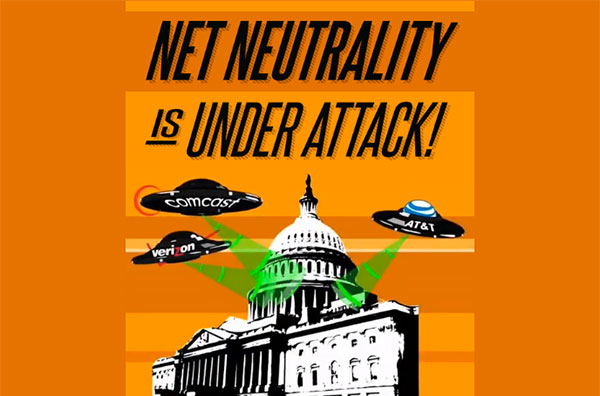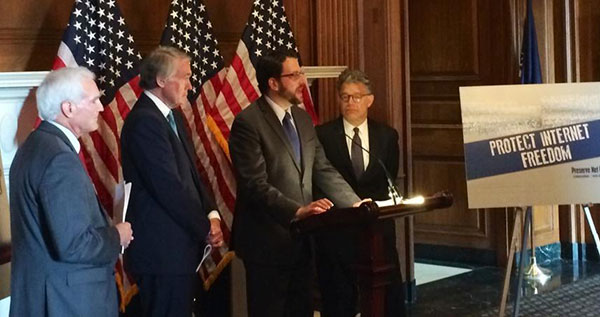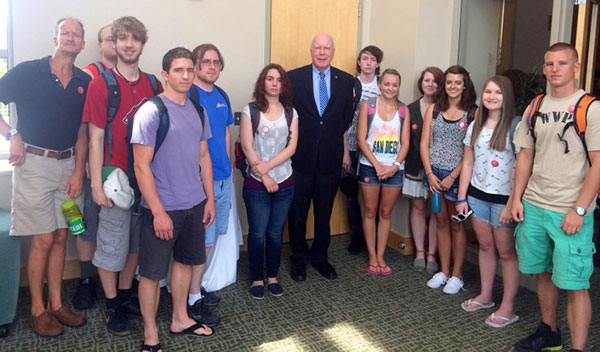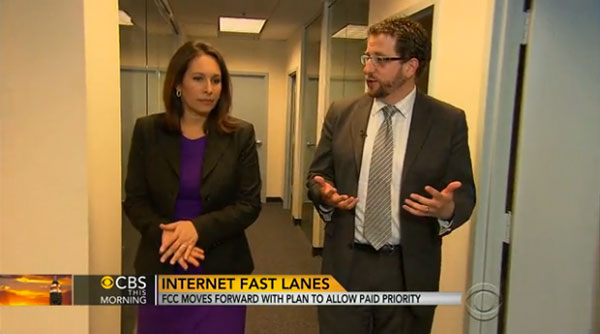Summer to Save the Internet
We’ve got less than six months to save the open Internet
By year’s end, the Federal Communications Commission is expected to vote on rules that would give Internet service providers the power to discriminate online and create pay-to-play fast lanes. If the agency issues these rules, the Internet as we know it will vanish.
Powerful companies like AT&T, Comcast and Verizon are deploying armies of lobbyists to prevent the FCC from making rules that would actually protect Internet users. We can’t let those companies be the only voices that the FCC and Congress hear.
The good news is that we’re seeing unprecedented levels of public interest and support for the open Internet and Net Neutrality. But if we’re going to win, we need to get bigger and louder than ever before — and we need to do it fast.
That’s why Free Press has launched the “Summer to Save the Internet.” Our goal: Convince the FCC to abandon its rules, restore the agency’s authority, and protect real Net Neutrality.
Scroll below to learn how we’re going to win.
What Is Net Neutrality?
Net Neutrality is the fundamental principle that ensures you can read, watch or download whatever you want — and it’s not up to a phone or cable company to decide which websites will work.
Why Is Net Neutrality So Important?
Net Neutrality has made the Internet an unrivaled environment for free speech, civic participation, innovation, opportunity, press freedom and much more. It prevents online discrimination and gives any individual, organization or company the same chance to share their ideas and find an audience.
How Is Net Neutrality at Risk?
The FCC’s proposal would let a handful of giant Internet companies become the gatekeepers of everything we do, say and see online. If the FCC’s rules go into effect, Internet service providers will be allowed to favor their own content and charge extra fees to others for VIP treatment. This would create a two-tiered Internet with express lanes for the few who can afford the tolls — and winding dirt roads for the rest of us.
What Can We Do About It?
To ensure decision-makers hear from millions of Internet users and not just a few big companies, Free Press is mounting an all-out campaign to organize public support for Net Neutrality. If we succeed, the open Internet will continue to thrive as a space shared and shaped by its millions of users.
Timeline to Save the Internet
Jan. 14, 2014:
A federal court strikes down the FCC’s 2010 Open Internet Order.
April 19:
The FCC’s new proposal is leaked — and Free Press ramps up our campaign pushing for real Net Neutrality.
Public interest in Net Neutrality reaches historic levels.
May 15:
The FCC officially proposes its flawed rules. Free Press is ready and organizes a lively rally outside FCC headquarters in Washington, D.C. The fight to save the Internet is on!
July 15:
On the day initial public comments on the FCC’s proposal are due, the agency’s servers crash thanks to the heavy traffic. In a few short hours Free Press and allies mobilize to hand-deliver hundreds of thousands of comments. The agency makes the unprecedented move to extend its deadline by three days.
July-August:
The Summer to Save the Internet: Free Press unleashes a major public education and organizing campaign that will include dozens of in-district meetings between members of Congress and activists.
Sept. 10:
The period for public reply comments closes.
September-October:
Free Press heightens pressure on the FCC and urges the agency to host public hearings.
Nov. 4:
Election Day
Nov. 14 and Dec. 11:
These are the last two scheduled FCC meetings for the year — likely timing for any new rules to be issued.
How We’ll Win
THE GOAL:
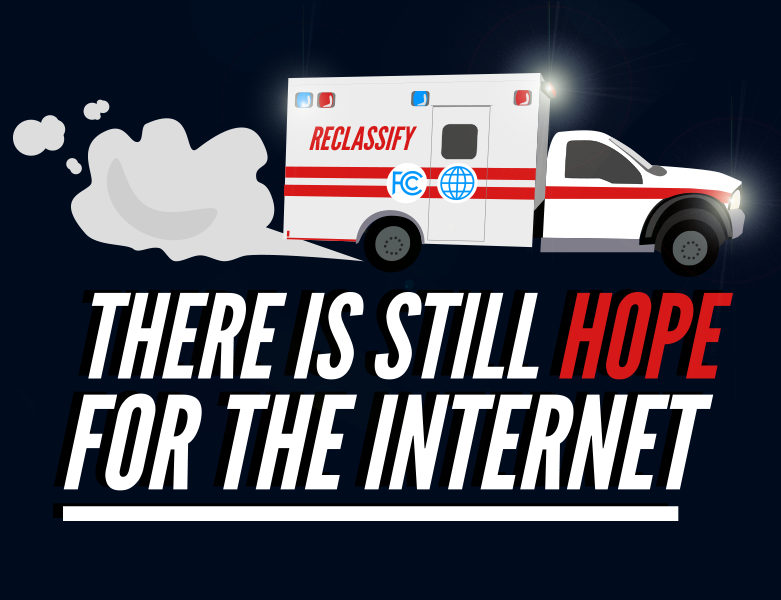
Convince FCC Chairman Tom Wheeler to scrap his current proposal and make rules that protect real Net Neutrality. He can do that by reclassifying broadband under the law and treating Internet access as a “common carrier.” This legally sound approach is the only way to protect Internet users from blocking and discrimination.
The next few months will be crucial: The FCC is expected to make a final rule before the end of 2014.
WHO WE’RE UP AGAINST:
We have a formidable opponent: the phone and cable industry, which employs an army of well-heeled lobbyists in Washington. These companies have essentially unlimited financial resources and close connections to Capitol Hill and the White House. Tech firms and Internet service providers rank among the biggest influence-peddlers in Washington, spending $26 million lobbying Congress on this issue in the first quarter of 2014 alone. Their misinformation campaign and litigation efforts have thwarted the FCC from implementing even basic safeguards online.
OUR WINNING STRATEGY:
The key decision-makers may live in Washington, but if the debate stays inside the Beltway the outcome will be disastrous. The only thing that will stop these powerful corporations from getting their way — the only thing that has ever stopped them — is organizing and mobilizing the public. Creative activism, nimble strategic collaborations, and popular education efforts are needed to ensure the public is heard.
Click the images below to see all the ways Free Press is leading this crucial fight.
At Free Press, we’re pulling out all the stops to restore Net Neutrality and save the Internet.
If you’re with us, make your most generous donation to Free Press right away.
Thank you!
